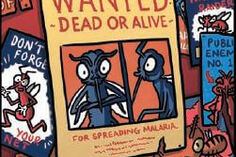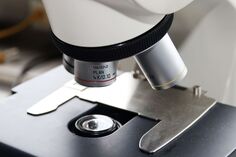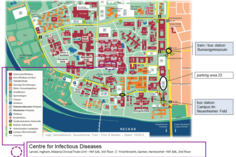
Lab members
Current members
Dr. Markus Ganter (Group leader, 2016 - present)
Marie Jakobovitz, Ph.D. (Postdoc in collaboration with the EMBL, 2023 - present)
Aiste Kudulyte (PhD student, 2023 - present)
Laura Plutowski (MSc thesis, 2022 - 2023; HiWi, 2023 - 2024; PhD student, 2024 - present)
Marie-Elise Bendel (MD student, 2023 - present)
Vera Lechner (MSc thesis, 2024 - present)
Leah Zink (MSc thesis, 2024 - present)
& various BSc students :-)
Research Interest
Cells usually multiply by duplicating their genome and divide themselves into two daughter cells. Yet, in some organisms, cellular multiplication follows distinct, somewhat bizarre routes. One of these rather unusual ways can be seen in Plasmodium spp., the causative agent of malaria, which remains a major scourge of humanity.
An unusual feature of Plasmodium replication inside erythrocytes, known as schizogony, is the number of nuclei and, hence, daughter cells they produce during one round of intracellular replication. Parasites with odd numbers of nuclei can be readily seen (Fig. 1). Divergence from a geometric expansion, which would lead to 2, 4, 8, 16, or 32 daughter cells, is caused by asynchronous replication.

This suggests that individual nuclei replicate autonomously until a global mechanism takes over and co-ordinates daughter cell formation. This is in striking contrast with nuclear division in other multinucleated cells, such as the early Drosophila embryo, where nuclei follow a geometric expansion, as their division is relatively synchronous.
To gain insight into the regulation of Plasmodium falciparum replication, we conducted a forward genetic screen for the conditional protein expression of protein kinases and identified a kinase as essential for proliferation (Fig. 2)

This kinase is Plasmodium-specific and a crucial regulator of the continuous rounds of DNA replication, histone modification, and regulation of gene expression. We also found that this kinase is required for transmission to the mosquito. This work serves as a starting point to gain a better understanding of Plasmodium replication biology.
Projects
We are currently using the human pathogen Plasmodium falciparum to uncover the signalling cascade that orchestrates parasite multiplication in the blood stage of infection. Furthermore, our previous work suggests that a set of unknown genes is involved in parasite replication. We are using classical reverse genetic tools and inducible gene-depletion approaches to characterize the function of these unknown genes. Additionally, we are analyzing the spatiotemporal organization of schizogony using live-cell microscopy.
Our overall aim is to elucidate the regulatory mechanisms that govern Plasmodium replication and understand a process that seemingly cannot be explained by current models of cell cycle regulation.
Currently our interests include:
- Investigating the genes involved in the regulation of replication and nuclear division
- Defining the interactome of the Plasmodium-specific kinase CRK4
- Deciphering the spatiotemporal organization of schizogony
List of publications
2024
Darif ND, Ganter M, Dziekan JM, Kilian N, Brancucci N, Ng C, de Vries LE, Guttery D, Philip N, Boddey JA, Metwally NG, Okumu F, Kooij TWA, Absalon S, Bryant JM (2024) BioMalPar XX: looking back on, and forward from, 20 years of malaria research. Trends Parasitol. Jul 15:S1471-4922(24)00170-3. doi: 10.1016/j.pt.2024.06.012. Epub ahead of print. PMID: 39013661.
2023
Voß Y, Klaus S, Lichti NP, Ganter M, Guizetti J (2023) Malaria parasite centrins can assemble by Ca2+-inducible condensation. PLoS Pathog. Dec 27;19(12):e1011899. doi: 10.1371/journal.ppat.1011899. PMID: 38150475; PMCID: PMC10775985.
Machado M, Klaus S, Klaschka D, Guizetti J, Ganter M (2023) Plasmodium falciparum CRK4 links early mitotic events to the onset of S-phase during schizogony. mBio. Jun 22:e0077923. doi: 10.1128/mbio.00779-23. Epub ahead of print. PMID: 37345936.
Wenz C, Simon CS, Romão TP, Stürmer VS, Machado M, Klages N, Klemmer A, Voß Y, Ganter M, Brochet M, Guizetti J (2023) An Sfi1-like centrin-interacting centriolar plaque protein affects nuclear microtubule homeostasis. PLoS Pathog. May 2;19(5):e1011325. doi: 10.1371/journal.ppat.1011325. PMID: 37130129; PMCID: PMC10180636.
Voß Y, Klaus S, Guizetti J, Ganter M (2023) Plasmodium schizogony, a chronology of the parasite's cell cycle in the blood stage. PLoS Pathog. Mar 2;19(3):e1011157. doi: 10.1371/journal.ppat.1011157. PMID: 36862652; PMCID: PMC9980825. Review
2022
Ganter M†, Guizetti J† and Kilian N† (2022) Visualization of Infected Red Blood Cell Surface Antigens by Fluorescence Microscopy Methods Mol Biol. 2470:425-433. doi: 10.1007/978-1-0716-2189-9_31. PMID: 35881363. †Corresponding authors
Arbon D, Ženíšková K, Šubrtová K, Mach J, Štursa J, Machado M, Zahedifard F, Leštinová T, Hierro-Yap C, Neuzil J, Volf P, Ganter M, Zoltner M, Zíková A, Werner L, Sutak R. (2022) Repurposing of MitoTam: Novel Anti-Cancer Drug Candidate Exhibits Potent Activity against Major Protozoan and Fungal Pathogens. Antimicrob Agents Chemother. Aug 16;66(8):e0072722. doi: 10.1128/aac.00727-22. Epub 2022 Jul 20. PMID: 35856666; PMCID: PMC9380531.
Vandorpe DH, Rivera A, Ganter M, Dankwa S, Wohlgemuth JG, Dlott JS, Snyder LM, Brugnara C, Duraisingh M, Alper SL. (2022) Purinergic signaling is essential for full Psickle activation by hypoxia and by normoxic acid pH in mature human sickle red cells and in vitro-differentiated cultured human sickle reticulocytes. Pflugers Arch. May;474(5):553-565. doi: 10.1007/s00424-022-02665-z. Epub 2022 Feb 16. PMID: 35169901.
Klaus S, Binder P, Kim J, Machado M, Funaya C, Schaaf V, Klaschka D, Kudulyte A, Cyrklaff M, Laketa V, Höfer T, Guizetti J, Becker NB, Frischknecht F, Schwarz US, Ganter M. (2022) Asynchronous nuclear cycles in multinucleated Plasmodium falciparum facilitate rapid proliferation. Sci Adv. Apr;8(13):eabj5362. doi: 10.1126/sciadv.abj5362. Epub 2022 Mar 30. PMID: 35353560.
2021
Schumann R, Bischoff E, Klaus S, Möhring S, Flock J, Keller S, Remans K, Ganter M, Deponte M. (2021) Protein abundance and folding rather than the redox state of Kelch13 determine the artemisinin susceptibility of Plasmodium falciparum. Redox Biol. Oct 31;48:102177. doi: 10.1016/j.redox.2021.102177. Epub ahead of print. PMID: 34773836; PMCID: PMC8600086.
Simon CS, Funaya C, Bauer J, Voβ Y, Machado M, Penning A, Klaschka D, Cyrklaff M, Kim J, Ganter M, Guizetti J. (2021) An extended DNA-free intranuclear compartment organizes centrosome microtubules in malaria parasites. Life Sci Alliance. Sep 17;4(11):e202101199. doi: 10.26508/lsa.202101199. PMID: 34535568; PMCID: PMC8473725.
Ganter M, Frischknecht F. (2021) Illuminating Plasmodium invasion by lattice-light-sheet microscopy. Trends Parasitol. Sep;37(9):777-779. doi: 10.1016/j.pt.2021.07.008. Epub 2021 Jul 28. PMID: 34332896.
Machado M, Steinke S, Ganter M. (2021) Plasmodium Reproduction, Cell Size, and Transcription: How to Cope With Increasing DNA Content? Front Cell Infect Microbiol. Apr 9;11:660679. doi: 10.3389/fcimb.2021.660679. PMID: 33898332; PMCID: PMC8062723.
2020
Pape C, Remme R, Wolny A, Olberg S, Wolf S, Cerrone L, Cortese M, Klaus S, Lucic B, Ullrich S, Anders-Össwein M, Wolf S, Cerikan B, Neufeldt CJ, Ganter M, Schnitzler P, Merle U, Lusic M, Boulant S, Stanifer M, Bartenschlager R, Hamprecht FA, Kreshuk A, Tischer C, Kräusslich HG, Müller B, Laketa V. (2020) Microscopy-based assay for semi-quantitative detection of SARS-CoV-2 specific antibodies in human sera: A semi-quantitative, high throughput, microscopy-based assay expands existing approaches to measure SARS-CoV-2 specific antibody levels in human sera. Bioessays. 2021 Mar;43(3):e2000257. doi: 10.1002/bies.202000257. Epub 2020 Dec 30. PMID: 33377226; PMCID: PMC7883048.
Quadt K, Smyrnakou X, Frischknecht F, Böse G, Ganter M. (2020) Plasmodium falciparum parasites exit the infected erythrocyte after haemolysis with saponin and streptolysin O. Parasitology Research. 119:4297–4302 (doi: 10.1007/s00436-020-06932-9)
Earlier papers
Przyborski J, Ganter M. (2018). Das ungewöhnliche Leben der Malariaparasiten. Biol. Unserer Zeit 48, 162–169 (invited review article in German)
Ganter M, Goldberg JM, Dvorin JD, Paulo JA, King JG, Tripathi AK, Paul AS, Yang J, Coppens I, Jiang RHY, Baker DA, Dinglasan RR, Gygi SP, Duraisingh MT. (2017) Plasmodium falciparum CRK4 directs continuous rounds of DNA replication during schizogony. Nature Microbiology 2: 17017 (DOI: 10.1038/nmicrobiol.2017.17)
Paul AS, Saha S, Jiang RHY, Coleman BI, Kosber AL, Chen C, Ganter M, Espy N, Gubbels MJ, Duraisingh MT. (2015) Parasite calcineurin regulates host cell recognition and attachment by apicomplexans. Cell Host Microbe 18: 49–60 (http://www.cell.com/cell-host-microbe/abstract/S1931-3128(15)00251-6)
Ganter M, Rizopoulos Z, Schuler H, Matuschewski K. (2015) Pivotal and Distinct Role for Plasmodium Actin Capping Protein alpha during Blood Infection of the Malaria Parasite. Molecular Microbiology 96: 84–94 (http://onlinelibrary.wiley.com/doi/10.1111/mmi.12922/full)
Coleman BI, Skillman KM, Jiang RHY, Childs LM, Altenhofen LM, Ganter M, Leung Y, Goldowitz I, Kafsack BFC, Marti M, Llinas M, Buckee CO, Duraisingh MT. (2014) A Plasmodium falciparum Histone Deacetylase Regulates Antigenic Variation and Gametocyte Conversion. Cell Host Microbe 16: 177–186 (http://www.cell.com/cell-host-microbe/abstract/S1931-3128(14)00262-5)
Sattler* J, Ganter* M, Hliscs M, Matuschewski K, Schuler H. (2011) Actin regulation in the malaria parasite. European Journal of Cell Biology 90: 966–971 (http://www.sciencedirect.com/science/article/pii/S017193351000261X) * Equal contribution
Siden-Kiamos* I, Ganter* M, Kunze A, Hliscs M, Steinbüchel M, Mendoza J, Sinden R, Louis K, Matuschewski K. (2011) Stage-specific depletion of myosin A supports an essential role in motility of malarial ookinetes. Cellular Microbiology 13: 1996-2006 (http://onlinelibrary.wiley.com/doi/10.1111/j.1462-5822.2011.01686.x/full) * Equal contribution
Ganter M, Schuler H, Matuschewski K. (2009) Vital role for the Plasmodium capping protein (CP) beta subunit in motility of malaria sporozoites. Molecular Microbiology 74: 1356-1367 (http://onlinelibrary.wiley.com/doi/10.1111/j.1365-2958.2009.06828.x/full)
Kursula I, Kursula P, Ganter M, Panjikar S, Matuschewski K, Schuler H. (2008) Structural Basis for Parasite-Specific Functions of the Divergent Profilin of Plasmodium falciparum. Structure 16: 1638-1648 (http://www.sciencedirect.com/science/article/pii/S0969212608003754)
News - Ganter group
Academic Lunch Break
(6 May- 19 July 2024)
15-minute specialist lectures, held away from the lecture theatre in the unique atmosphere of St Peter's Church, entertaining, informative and, above all, easy to understand, followed by a Q&A session. In 2024, the Health + Life Science Alliance Heidelberg Mannheim provided insights into current cutting-edge research in the life sciences, the treatment of human diseases and the scientific basis for new therapies.
The events took place Monday to Friday (except public holidays) from 1.00 pm to 1.30 pm in Heidelberg's Peterskirche, Plöck 70.
Please note: on 7 June, our group leader Markus Ganter gave a lecture on "The unusual way of life of the malaria parasite", which is also available online on YouTube.
Prize for exellent teaching
(22 July 2024)

The Prize for Excellent Teaching at the Faculty of Medicine (PaLMe) is awarded by the Heidelberg Medical Student Council to honour and reward excellent teaching by students.
We are extremely pleased to announce that this semester one of our group leaders, Markus Ganter, was honoured with the award, together with 2 colleagues from the Clinics of Vascular and Endovascular Surgery (Katrin Meisenbacher) and the Heidelberg University Biochemistry Centre (Sebastian Schuck). We have always known that Markus is an excellent lecturer! Congratulations to all the PalMe winners and may the prize inspire other lecturers to bring the same passion and dedication to their teaching.







